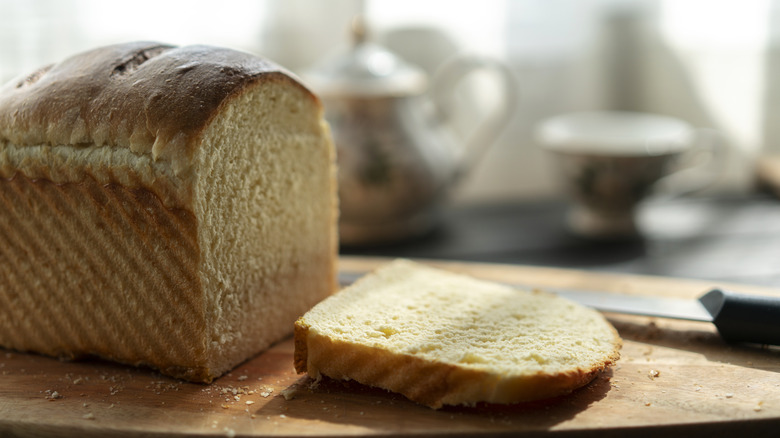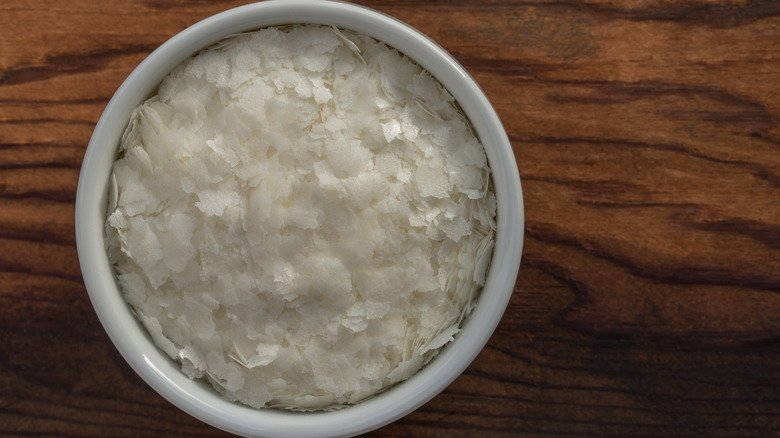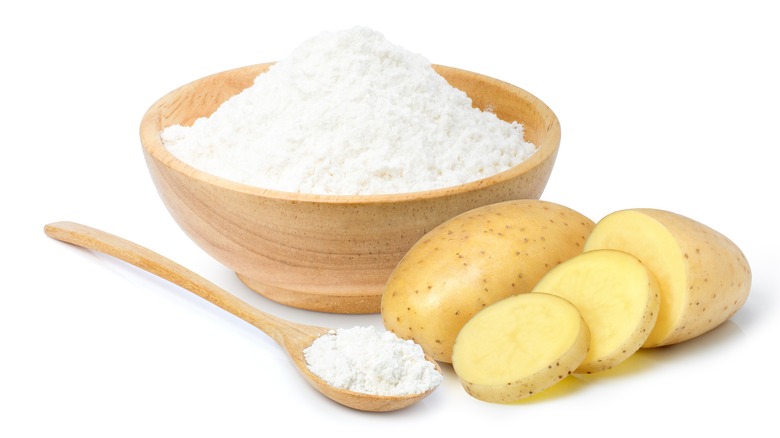Potato Flakes Are The Key Ingredient For Perfect Homemade White Bread
For some, a box of instant mashed potatoes is a pantry staple. It's a remarkably simple product — potatoes that have been peeled, cut finely, and dehydrated. Some versions include preservatives, but others only contain small flakes of potatoes. These potato flakes are probably best known for being a quick way to make a simple side dish or a topping for shepherd's pie, but there are more uses for them than just making instant mashed potatoes. In baking, these flakes can actually make baked goods taste better and last longer.
There are a number of recipes that use regular potatoes in baking breads and rolls, but trusty potato flakes can improve other baked goods without the extra work. You don't have to be making potato bread to use potato flakes, either. Adding some potato flakes to a regular white bread dough can work wonders. These little beauties will help make your bread soft and keep the crumb moist.
Why potato flakes make bread better
What do potato flakes bring to the dough? Potatoes, in all their varied forms, equal starch, and the more starch in dough leads to a more tender loaf. They are good at retaining moisture, which helps keep the bread soft longer. And even though potato flakes are dehydrated, they will rehydrate once incorporated into the bread dough. This means that they will work like regular potatoes in the dough, making it stay moist for longer than dough that only contains wheat flour.
It seems that it doesn't take too many potato flakes to make a difference in a loaf of white bread. Think about using a ½ cup or a ⅓ cup of the flakes for every 3 cups of flour. It's enough to improve the bread dough without significantly impacting the loaf's flavor. The presence of potato may also lead to a faster rising time for the dough. This is because potatoes have potassium, and this mineral interacts with yeast, giving it a boost in rising power.
Potato flakes versus potato flour
Like potato flakes, potato flour is made from whole potatoes. To make the flour, the potatoes are dehydrated and then ground down to become a fine powder. Potato flour is a great gluten-free baking option. And similar to potato flakes, it retains the nutrients of the potatoes. This is how both of these items differ from potato starch, which is simply the starch that has been extracted from the vegetable.
Potato flakes can also be substituted in recipes that call for potato flour. You'll just want to measure by weight since the individual potato flakes are larger than potato flour granules. You could also make your own potato flour by running the potato flakes through the food processor. In any case, this swap will save you from having to keep a bag of specialty flour on hand. In addition to amping your bread dough, potato flakes can act as a gluten-free substitute for bread crumbs.


